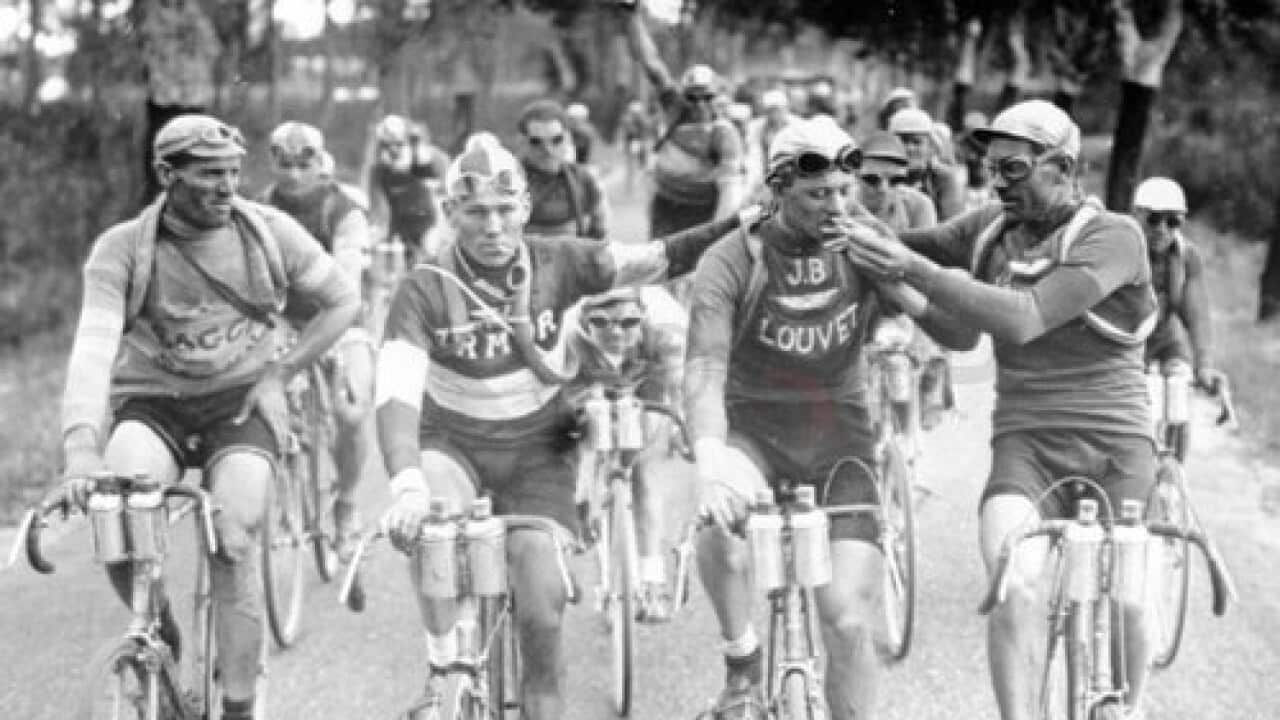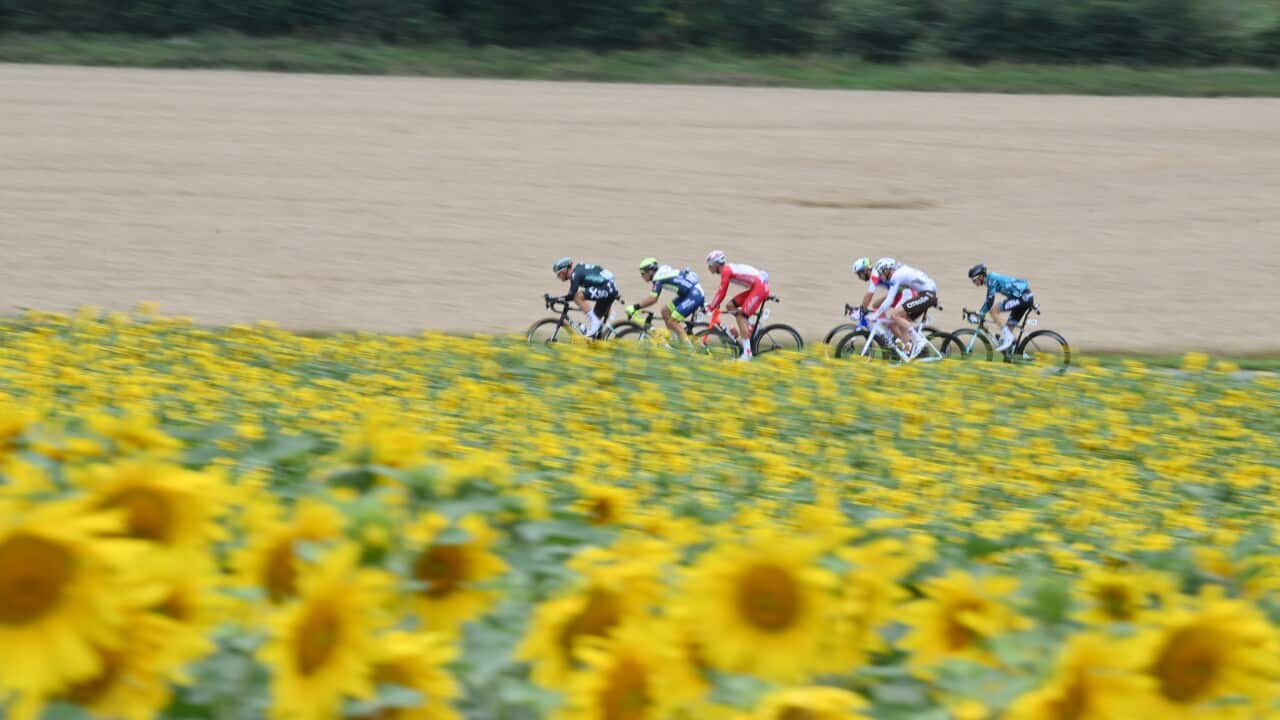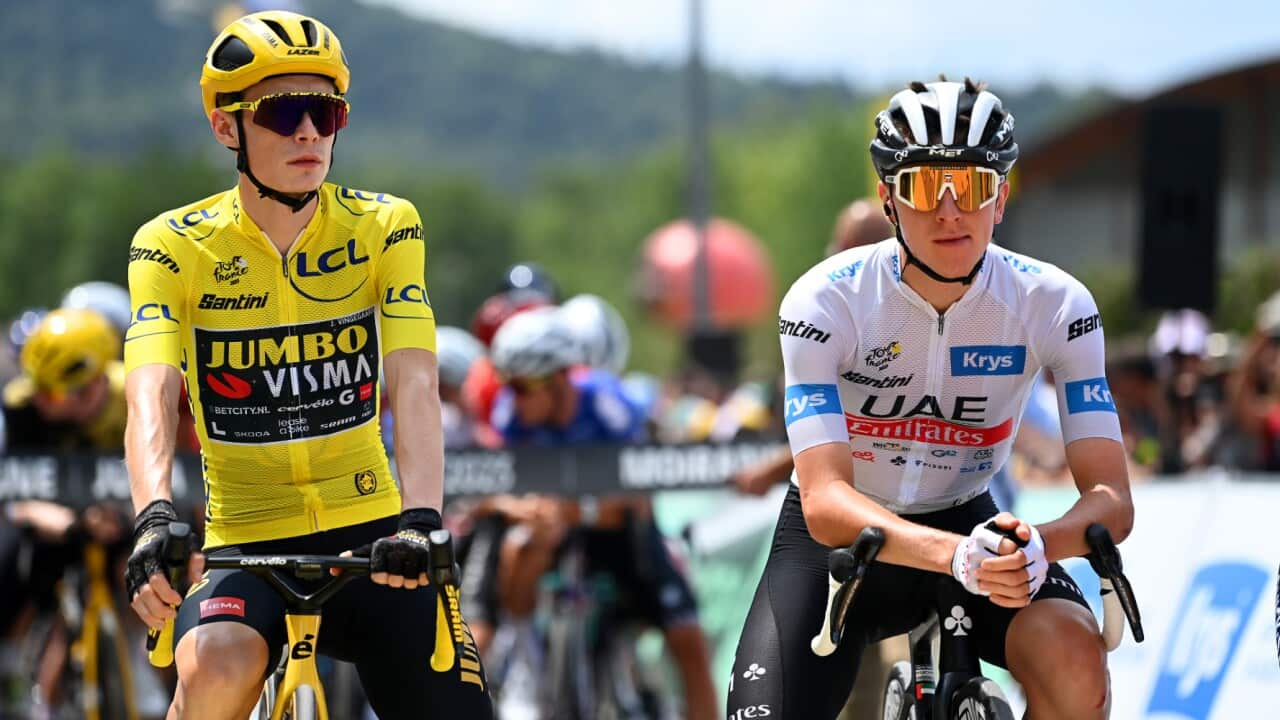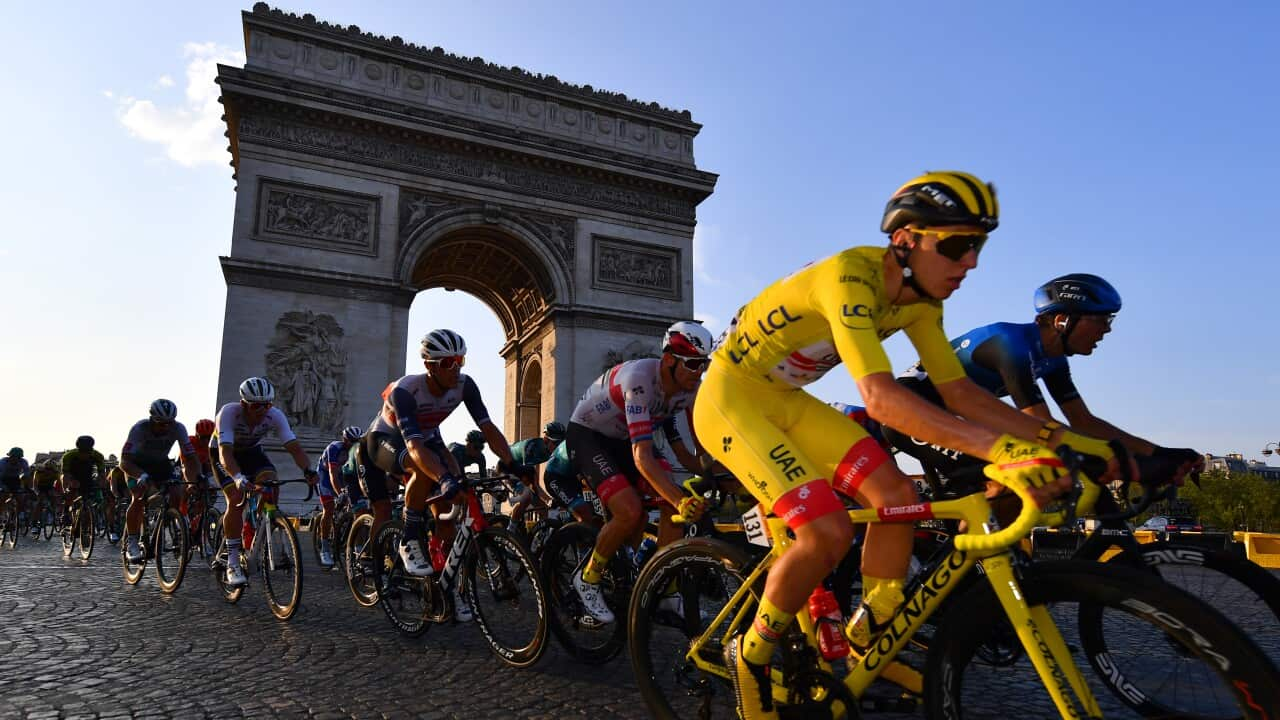It's the world's most famous annual cycling event. And it's also widely considered the toughest and most prestigious.
Launched in 1903 by sports newspaper L'Auto as a way to boost sales, the event is now watched by millions around the world, while thousands more line the road to cheer on the world's top riders.
This year, 176 cyclists representing 22 teams will take part.
There are also a few things that make the 111th edition of the Grande Boucle — meaning 'big loop' — one to watch.
When does the Tour de France 2024 begin?
For the first time ever, the race will begin in Italy, kicking off in Florence on 29 June.
It concludes in Nice, France, on 21 July — also a first.
Traditionally riders finish the tour in spectacular style on the Champs-Élysées in Paris.

Cyclists pass through the Champs-Élysées in Paris during the final stage of the 2023 Le Tour de France. Credit: Michael Steele/Getty Images
What is the Tour de France route?
The tour's route changes every year and 2024's course is considered particularly tough.
Riders will cross through Italy, San Marino, Monaco and France and clock up over 3,942 kilometres.
And of course, not all of the route is over flat ground.
The race traverses four mountain ranges: the Apennines, the French and Italian Alps, the Massif Central and the Pyrenees.
This stunning but steep terrain means there will be around 52,340 metres of vertical ascent over the route.
Mark Cavendish, who shares the record for stage win with Eddy Merckx, said he was "shocked" by the 2024 route.
Stages: the races within the race
The tour is broken up into 21 day-long stages, with just two compulsory rest days.
In 2024, there are eight flat stages, four hilly, two time trials and seven mountain stages.

The Tour de France 2024 will pass through the Alps and feature four notorious summit finishes in its seven mountain stages. Credit: Tim de Waele/Getty Images
The flat stages are not entirely flat, and four of the mountain stages have notorious summit finishes, meaning the rider has to push to the top of the mountain right when they are most tired.
Why does everyone want a yellow jersey?
The cyclist leading the General Classification - the race overall - is easy to spot in their bright yellow jersey — originally chosen by L'Auto to reflect the colour of its printed pages.
The rider wearing the jersey can change day-to-day.
Each stage is its own competition, and riders try to snatch jerseys from each other.

Giulio Ciccone rides through Moûtiers in France during the Tour de France 2023, wearing the polka dot 'King of the Mountain' jersey. Credit: Tim de Waele/Getty Images
- Yellow: Overall race leader. The rider with the lowest accumulated time since the tour’s beginning.
- Green: Leader of the points. Usually, a sprinter who has collected points for finishing stages first.
- Polka Dot: 'King of the Mountain'. The rider with the most points from winning designated climbs.
- White: Best young rider (under 26) with the lowest overall time.
The tour's overall winner has the lowest combined time across all 21 stages. Usually, they are an all-rounder — good at sprinting, climbing and time trials.
READ MORE

10 unbelievable Tour de France facts
Is there a Tour de France for women?
Around the time men's cycling competitions were taking off, women were being told that if they were allowed to compete in such events they could develop an unsightly — and entirely made-up —
The history of the women's competition has been, like the tour itself, a roundabout loop with many ups and downs.
Six versions of a women's tour have existed under various names, and all have struggled with funding, publicity, and conditions.

Jersey winners celebrate after the second Tour de France Femmes in Pau, France, in 2023. Credit: Alex Broadway/Getty Images
In 2024, 154 riders will compete, making up 22 teams of seven racers.
Where and when is the Tour de France Femmes 2024?
The women's race begins on 12 August in Rotterdam, the first Grand Départ outside France.
It crosses three countries — the Netherlands, Belgium and France — before the final stage on 18 August at Alpe D'Huez in the French Alps.
For the women, stage seven is the longest (167 kilometres) but the eighth and final stage features the hardest climbs.
They will cross four mountain ranges: the Ardennes, Vosges, Jura and the Alps.
Where can I watch the events?
The men's event will be shown exclusively on SBS and SBS On Demand from 29 June.
The women's event will be available from 12 August.
Watch all 21 stages live and free, plus stream full stage replays, mini stages and highlights exclusive on
Stream free On Demand

Tour de France 2024












